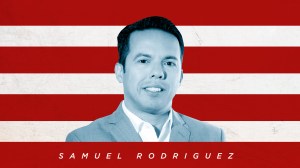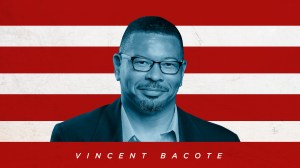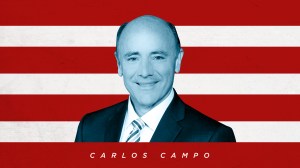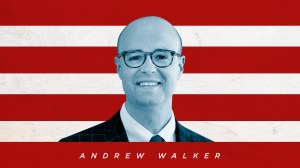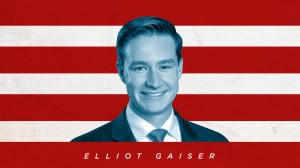In this series
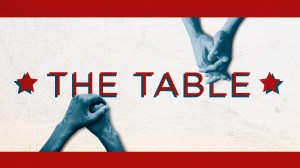

At the height of the immigration debate in 2016, I accompanied a group of pastors in Washington, DC, to meet with their members of Congress. One pastor of a prominent, large evangelical church, remarked afterward how he wanted to go back to his hotel and take a shower because he felt so “dirty” talking to politicians.
The disdain we feel for our elected officials and political systems is often rooted in a belief that politics are defined by insincerity and dishonesty. Subsequently, many Christians chose to be apolitical. They don’t contact their elected officials, vote, or even discuss issues that show up nonstop on their social media feeds, such as climate change, gun violence, and immigration.
Contrary to those who avoid politics are evangelical Christians for whom politics is the only salvation for a Christian society under threat. Their conviction is marked by a hyperpartisanship, a blind allegiance that neglects the values Christians historically hold. We give a blank check to our “tribe,” and that ends up harming the very people God calls us to love and serve. As Richard Land recently wrote, “to equate God with any human institution, particularly one as flawed and as intensely human as either political party, is a form of blasphemy.”
Evangelical political engagement should be marked by neither political disengagement nor hyperpartisanship. If we are biblically political, we can work for systems and structures that create human flourishing throughout our entire society. But overt partisanship attaches us to centers of empire power and perpetuates injustice.
So how can we engage faithfully in politics?
1. Affirm the Image of God in All People
Our political engagement should be rooted in the belief that everyone is created in the image of God. Our pro-life ethic should be for the entirety of life, from womb to tomb. We should support policies and hold our elected officials accountable to protect life and promote full human flourishing. Any language used by our elected officials to vilify others should not be the language of the church. No matter our politics, demonizing those of a different political persuasion is not consistent with the humility, decency, and propriety that marks us as followers of Jesus.
2. Be Consistent in Our Political Witness
Among the greatest challenges in churches is consistently applying the whole biblical truth in every area of our lives. A consistent pro-life ethic should mean we hold our elected officials accountable to creating policies based on biblical values we espouse and not remain silent when those elected officials, or parties, espouse policies that would harm human life, promote family separation, or diminish religious liberties. If your preferred political candidate is strongly against abortion, then you should also press that elected official to support that baby’s life after birth by ensuring that he or she has access to nutritious food and a quality education.
3. Pursue Politics as a Means of Advocacy for the “Least of These”
Scripture calls us to demonstrate preference for those who are downtrodden, marginalized, and oppressed, both through God’s commandments (Deut. 10:18; Ps. 146:9; Zech. 7:10; Mal. 3:5) and Jesus’s example (John 4:4–26; Luke 8:43–48; Mark 2:1–12). We therefore advocate for those with disabilities, immigrants, those experiencing homelessness and mental illness, and those in the foster care system, among others. The way that we speak and act, along with our political engagement, must show care and concern for those who are often least able to defend themselves. A recent Barna study found that 43 percent of 18-to-35-year-olds said caring for the poor and vulnerable is a defining mark of a Christian, along with combating corruption, extreme poverty, and racism.
4. Don’t Shy Away from Political Issues in Church
Conversations about race, immigration, gun violence, and mass incarceration are difficult. The church can foster community and provide space to come together despite political differences. Our political allegiance should never preclude us from reaching across the aisle to pray for one another, do ministry together, and carry each other’s burdens. Political issues can be addressed through biblical teaching without getting into the nuances of policy proposals and debates. Ultimately, politics provides an opportunity to shape the society around us in a way that reflects the shalom that God describes in the Bible.
A Strong, Consistent Political Witness
The church has a rich history of biblical activism. The Clapham Sect in the nineteenth century promoted abolition in England; Mahalia Jackson, Martin Luther King Jr., Ralph Abernathy, and Fred Shuttlesworth were civil rights leaders rooted in the black church; and Saddleback Church in California helped lead a movement to care for HIV/AIDS orphans, as well as a movement against sex trafficking.
I recently visited John Brown University, where I met students active in speaking up for refugees in Arkansas. They formed a group called Students for Refugees, and when the governor of Arkansas spoke at their chapel a few years ago, they held up signs and met with him to discuss the importance of keeping Arkansas a welcoming state. These students actively follow legislation in Washington, DC, that would strengthen the US refugee resettlement program and have contacted their legislators to express support.
These students provide hope that political engagement as Christians can be values-based, promoting the dignity of human life and the worth of the marginalized. At a time when most white evangelical Christians say that the U.S. becoming a majority-nonwhite country is a negative development, 66 percent of young white evangelicals (ages 18-34) say that immigrants strengthen the country because of their hard work and talents. Young evangelicals don’t view demographic shifts as a threat, nor do they believe their faith is under threat. Such perspective allows young evangelicals to become more active in advocating for their vulnerable neighbors. Their engagement is rooted in their theology and in real relationships they’ve built with those directly impacted by detrimental policies.
Politics is not the only answer to life’s problems, but politics is a means of advocating for our own freedom and freedom for the “least of these”—the poor, the immigrant, and the systemically disenfranchised. If we maintain a consistent political witness that both supports our preferred candidates and holds them accountable to our values, politics can be a fruitful means of pursuing and establishing justice in our country. The forcefulness of our convictions and our consistency in a political engagement that bears witness to true Christian and the kingdom of God will demonstrate to a watching world that we as Christians are not merely tools used by our elected officials for political gains. We do not use our voice only as a means for preserving Christian identity and freedom. We use our voice to speak up and defend the rights and value of those who are weakest in our society.
Jenny Yang is the vice president of advocacy and policy at World Relief.



